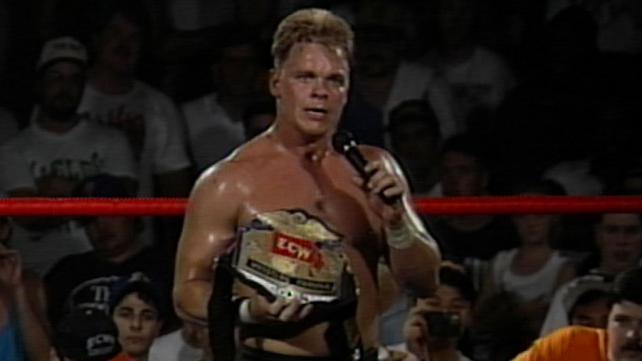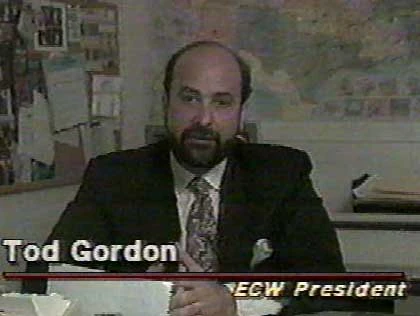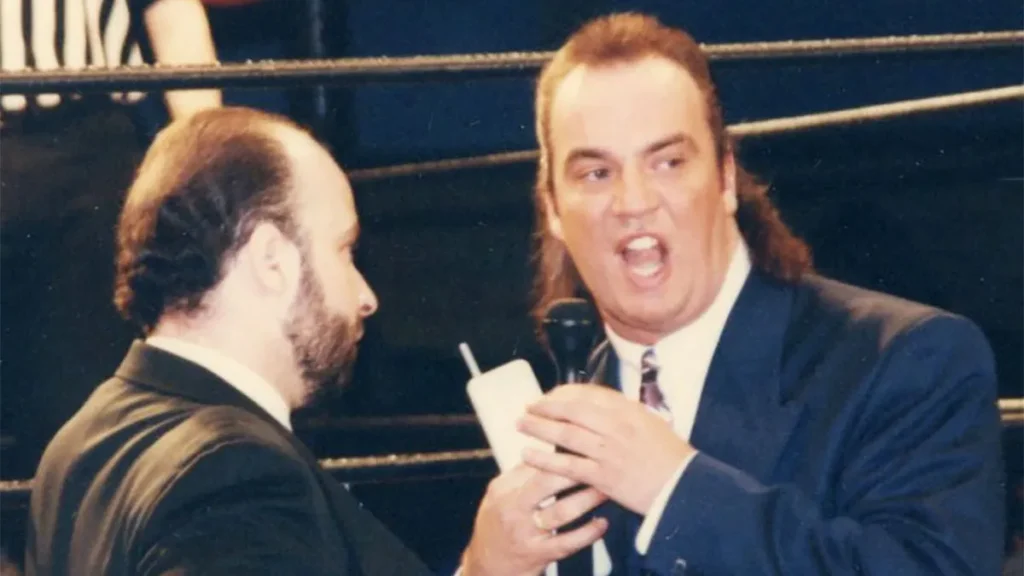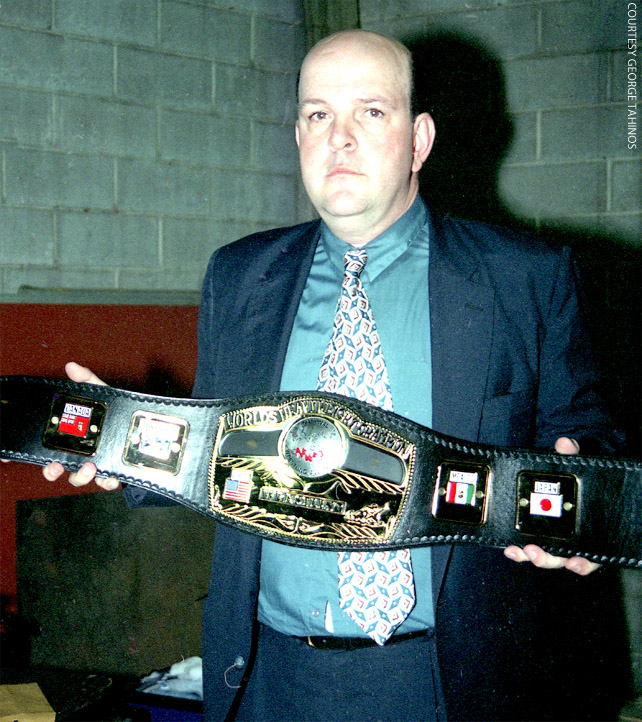
Alliance Broken To The Extreme
There’s no doubting the legacy of the National Wrestling Alliance in the hearts and minds of long-time grapple fans. It was the vast organisation that dominated professional wrestling for decades in North America, with affiliated promotions in countries like Australia, New Zealand and Japan. Opponents of the Alliance were usually cut down to size, so much so, that in 1956, they were investigated by the U.S Department of Justice on allegations of creating a monopoly.
They took a major hit in the 1980s due to Vince McMahon’s national expansion, and one by one, affiliated promoters went out of business. It was getting into the corporate age of wrestling, and smaller, regional promotions could no longer compete. It was either the WWF, or the NWA-aligned Jim Crockett Promotions, both of which aired their shows on national cable television and the lucrative medium of pay-per-view.
However, in 1988, in attempting to keep up with the WWF, JCP learned that they were millions of dollars in debt and sold to Ted Turner. The NWA no longer had a national presence, but due to their history and lineage of their World Heavyweight title, it still gave smaller promoters credibility by joining the Alliance. In 1992, that number would include the South Philly-based Eastern Championship Wrestling.
When Philadelphia jewelry store owner and long-time wrestling fan Tod Gordon started ECW, he was not new to the game. Gordon had been a silent partner of Joel Goodhart, who ran the Tri-State Wrestling Alliance. When it folded in 1991, Gordon was approached by some former employees about starting a new company to fill the void, and he accepted.

Close by in New Jersey was another NWA affiliated group – aptly named NWA New Jersey – run by Dennis Coralluzzo. Despite some issues carried over from the Goodhart days, Dennis and Gordon worked on a show together called “Battle of the Belts” on January 23, 1993 (which we covered in podcast form). However, it was a short-lived relationship.
Later that year, at a meeting in Texas, Dennis was made co-president of the NWA. The organisation had just parted ways with WCW – which is a story in itself – and discussed plans on making the Alliance a major player in the wrestling business once again. After the meeting, Coralluzzo voiced his concerns about ECW and their hardcore content, as well as issues over territorial boundaries, which he believed Gordon had reneged on.
Not only did Dennis complain to the wrestling newsletters, but he made what could be termed as crude attempts to disrupt ECW; sending tapes of ECW’s violent content to venues to get them to cancel bookings, having a fire marshal shut down an event in progress for code violations, and even – according to Shane Douglas – putting flyers on fan’s windshields denouncing the company.
On one occasion, Gordon claimed that security caught Dennis and an accomplice letting air out of people’s tires in the parking lot at an ECW show. It got so bad that the normally level-headed Cactus Jack (Mick Foley) had Gordon pull over at a phone booth, and berate Dennis for “taking the food out of his mouth.”
No doubt to Dennis’ chagrin, the board decided to have ECW host a tournament to crown a new NWA World champion. Despite his high standing, Dennis was out-voted and the tournament was to take place on August 24, 1994 at the increasingly famous bingo hall now called the ECW Arena.

A lot happened in ECW’s world going into 1994. After Gordon – and for a short time Larry Winters – Eddie Gilbert was made the booker. Two of the talents Eddie brought in were former WCW personalities Shane Douglas and Paul E. Dangerously (Paul Heyman). Heyman had just been fired from WCW after managing the hottest heel group in the company (The Dangerous Alliance). He went to Texas to work with Jim Crockett Jr, who returned to the business and formed the ultimately short-lived World Wrestling Network. At the same time, Heyman worked on ECW shows and then joined them full-time when WWN folded.
Heyman and Gordon clicked, and seemed to have a similar booking mentality. Unlike Joel Goodhart, Gordon had mostly utilised local unknowns that had been preliminary workers for TWA, with the occasional big name thrown in. Heyman also wanted to develop new talent, and when Gilbert left on bad terms, Heyman became the new booker. His first show under his complete command was Ultra Clash on September 18, 1993, and he instantly put over a new act called The Public Enemy.
The company gained more and more steam, particularly after The Night The Line Was Crossed, in which ECW gained a lot of acclaim in the newsletters for the main event. It featured Terry Funk against Shane Douglas against Sabu in the first three-way dance. It went to the sixty minute time limit, and despite it being a draw, many of the 1,000 fans in attendance stood and applauded. Tommy Dreamer noted on a WWE-produced DVD that the show was “a turning point” for ECW.

In the lead up to the tournament show, Coralluzzo continued to fan the flames to the wrestling newsletters. He decided to be the NWA representative at the event, and sit ringside with Gordon to make sure everything went smoothly. Unbeknownst to him, a plan was well in motion to not only embarrass him, but to leave the NWA in the most vocal and controversial way.
Current ECW Heavyweight champion Shane Douglas defeated Too Cold Scorpio in the final to claim the NWA World Title. He began cutting an emotional victory speech, name-dropping past NWA champions. Looking up into the heavens he said, “this is for you, Dad.” He then proclaimed that they could all “kiss his ass” and threw down the title. As Douglas continued, a nervous Coralluzzo sat at ringside chewing his fingernails, as Gordon claimed that it was all just an angle.
Because I am not the man who accepts a torch to be handed down to me from an organization that died – RIP – seven years ago. The Franchise, Shane Douglas, is the man who ignites the new flame of the sport of professional wrestling. Tonight, before God and my father as witness, I declare myself, the Franchise, as the new ECW Heavyweight Champion of the world. So tonight, let the new era begin: the era of the sport of professional wrestling; the era of the Franchise; the era of the ECW. – Shane Douglas

Corraluzzo had to know this wasn’t an angle, but he made a statement anyway on behalf of the NWA for the ECW television show, making his disdain well known. Then, Tod Gordon appeared on the programme and stated that:
…as of noon today, I have folded NWA Eastern Championship Wrestling. In its place will be ECW – Extreme Championship Wrestling – and we recognize the Franchise, Shane Douglas, as our World Heavyweight Champion.” – Tod Gordon
In a 2001 shoot interview, Tod credited Heyman for coming up with the name “extreme.” The banner was suitably corrected by Public Enemy, who crossed out “Eastern” in exchange for “Extreme.” Not only were the fans in attendance stunned, but so to were many of the wrestlers in the back, who were not informed what was going to happen. Irreversible damage was done to the NWA and the championship. Not only did Dennis step down a year later as co-president, but not surprisingly, the NWA did not recover to take on the WWF and WCW as they had planned.
Regardless of the issues with Coralluzzo, it was inevitable that ECW would break off with the Alliance. The promotion was developing an audience, featuring matches and storylines of a more mature persuasion, making them a destination for fans tired of the cartoon antics in the WWF and WCW. Just as Nirvana was to music in the ’90’s, Heyman wanted ECW to be the Nirvana of professional wrestling. Names that had been unknowns a couple of years earlier – such as Tommy Dreamer, Taz and The Sandman – caught on, largely thanks to Heyman’s booking, and the freedom he gave to the wrestlers.
In 1997, Jim Cornette – another very vocal critic of ECW and good friend of Coralluzzo – was convinced by Chris Candido to make a one-off appearance for the company at the Arena. Jim’s main proviso for agreeing was that Heyman apologise to Dennis over the 1994 tournament incident. Heyman claimed he shook Dennis’ hand and apologised, something categorically denied by Coralluzzo.
In 1999, Corralluzzo was removed from the NWA Board of Directors for health reasons. On July 30, 2001, he passed away while in a coma due to bleeding on the brain, at the age of just 48. In 2009, he was posthumously inducted into the NWA Hall of Fame.
